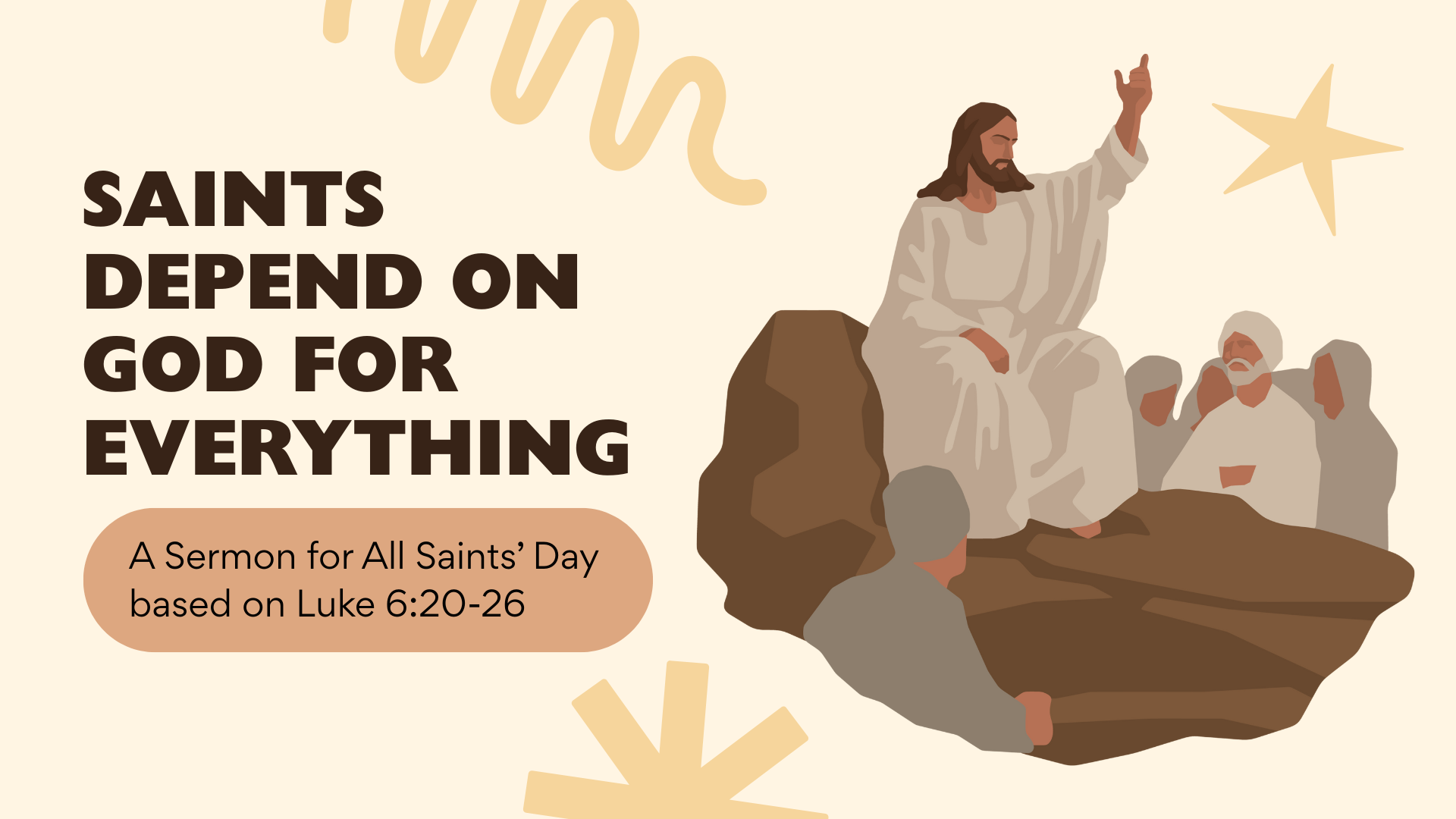“Who Do You Say I Am?” (A Discussion of Christ’s Two Natures)

Before you continue, we recommend reading the previous post: “I Hope So” (A discussion of the Fall into Sin and God’s Promises of the Savior) if you haven’t already!
The disciples were a band of misfits. Each of the Jewish men Jesus called into his close fellowship came from a wildly different background, different levels of education, even different political persuasions. It would be superficial to conclude that they, being Jewish men residing in the Mediterranean area during the first century, were all exactly the same. What they did have in common, though, was Jesus. They were entranced by the authority, the teaching, the power, and the love of this man.
Jesus is on his teaching and healing tour. He’s aware that the day of his crucifixion draws near. While traveling, Jesus asks this band of misfits, his students, “Who do people say the Son of Man is?”
In our Sunday morning Bible class, we asked each other the same question. Who do people say the Son of Man (one of Jesus’ favored titles for himself) is? The answers covered it all. We observed that, of course, many maintain that Jesus never existed, despite the extra-Biblical (“outside of the Bible”) historical evidence that supports that he did. Others accept that Jesus was a real person, and that he was an influential figure. However, there’s a lot of confusion about the extent of that influence and the type of influence he had. People will talk about Jesus the same way they talk about Martin Luther King Jr., an important man who stood by his beliefs even when it cost him everything, and through whose legacy the world greatly improved. People will equate Jesus with prophets and important figures from other religions, as if he’s just Christianity’s “guy” as much as Mohammed or Buddha are the “guys” of Islam and Buddhism, respectively.
Thus is the basic gist of what you hear about Jesus “out there.” During the same Bible class, we asked each other, “Who is Jesus to you?” and the answers were very different. Far from, “A teacher,” or “An influential figure,” or even, “A man who may or may not have existed,” participants finished the sentence “Jesus is…” with: “My friend,” “My shield,” “Protector,” “The Light,” “Patient,” “Nurturing,” “Selfless.” Now, before you say to yourself, “There’s nothing uniquely Christian about those perspectives. Many people believe Jesus was a positive character,” let me ask you this: How crazy would it sound if you said that Martin Luther King Jr. was not just an important historical figure, but that he is your personal friend, your protector, your teacher? For one thing, he was killed in 1968, decades before I was born, and maybe you too. It would be ludicrous to believe that you have a personal relationship with someone so removed from you in terms of life, time, and geography.
The answers the participants gave to the essential question, “Who is Jesus?” showed that they feel a personal relationship with him still, even though he was crucified close to 2,000 years ago. I don’t think that sounds any less ridiculous than the way the disciples answered the same question when Jesus himself asked it. After collecting their responses to his poll of who the people say he is (Matthew 16:13-14), he turns the question on the disciples, “But what about you? … Who do you say I am?” and Peter, often the spokesperson for the disciples, declares, “You are the Messiah, the Son of the Living God,” (Matthew 16:15).
By confessing this about Jesus, Peter was declaring all the prophesies of the Messiah and Savior to be fulfilled in Christ (we talked about this in the previous post titled “I Hope So”). He declares that Jesus is not just the mascot of a new religion getting off the ground, but that he comes from – is the “Son of” – God himself. Which means that Peter believes God almighty to have given his Son into the world, which means that God has initiated his plan of salvation in the world through Jesus Christ.
Clearly, Jesus is so much more than just the “guy” of Christianity. The writer to the Hebrews records, that Jesus was “made lower than the angels for a little while,” that is, that he came from heaven and submitted himself to life as fully human (Hebrews 2:9). He became a mortal man so that he could live under the weight of the expectations of God’s holy law (Galatians 4:4) perfectly in our place, and so that he could die the death we sinners deserve (Hebrews 2:9). The writer to the Hebrews concludes, based on this, “In bringing many sons and daughters to glory, it was fitting that God, for whom and through whom everything exists, should make the pioneer of their salvation perfect through what he suffered. 11 Both the one who makes people holy and those who are made holy are of the same family. So Jesus is not ashamed to call them brothers and sisters” (Hebrews 2:9-11). Because Jesus was truly human, he is the Savior that sits beside me. As the participants in our bible class pointed out, he is our nurturing and gentle friend.
Peter declared his faith that Jesus, a true, flesh-and-blood human being, is also the Son of God. That this man standing before him, whom he had seen eat and drink, go to sleep, and maybe even excuse himself to take bathroom breaks, is not just a man. Compare this to what John, another disciple, later wrote about Jesus, “John writes, “In the beginning was the Word, and the Word was with God, and the Word was God. He was with God in the beginning” (John 1:1-2), and “The Word became flesh and made his dwelling among us. We have seen his glory, the glory of the one and only Son, who came from the Father, full of grace and truth” (John 1:14), and “No one has ever seen God, but the one and only Son, who is himself God and is in closest relationship with the Father, has made him known” (John 1:18). While Jesus became 100% human, he also remained 100% God. As Paul wrote, “For in Christ all the fullness of the Deity lives in bodily form” (Colossians 2:9).
This is crucial. If Jesus were just human and not God, his righteous life and innocent death would have no significance in my life. He would just be an important guy, another tragic martyr lost to human cruelty. However, if Jesus were just God and not human, then he would just be another “angel of the Lord” appearance as we see in the Old Testament. He would have just been a vision. He wouldn’t be the empathetic Savior who suffers for me and with me that he claims to be.
Jesus is more than just the mascot of the Christian religion. He is God himself. That’s why participants in the Bible class were able to say that he is, “omnipresent” (a fancy word meaning “everywhere”), “all-powerful / omnipotent,” “truth itself,” “eternal,” “all-knowing / omniscient,” because he truly is God himself.
Don’t get lost in the theological jargon. Jesus isn’t just God. He is your God, and my God (John 20:28). He isn’t just a deity figure of this particular religion, he is your brother (Hebrews 2:11), who came to bring you into God’s grace (John 1:17-18). If you’re having trouble wrapping your head around that, then take a break. Don’t try too hard to solve it logically, but think about this: How does it make you feel about the rough week you’re going to have at work, to know that Jesus, though God, suffered through many rough weeks of his own? How does it make you feel, when you are burdened with temptation, to know that Jesus felt the constant nagging of temptation as well (Luke 4:2)? How does it make you feel to know that even though your sin separated you from God, God himself bridged the separation by becoming a human just like you (Ephesians 2:14-18)?
Remember this the next time you feel far from God. No matter how ashamed of yourself you feel, God is not ashamed of you (Hebrews 2:11). No matter how distant you feel from God, his grace is not distant from you. No matter how weak you feel in your own flesh and blood, Jesus is powerful for you. That’s the difference that recognizing the two natures (1. human nature, 2. divine nature) of Christ can make.
Permit one final observation: This band of misfits, of wildly different people, called “the disciples,” were united by one thing: the importance and specialness of this Jesus character. Not all of them hung onto that truth. In fact, one of them betrayed that same Jesus, handing him over to death. It still is worth observing the tremendous power Jesus has to bring different people together. If you are looking, you will see the same phenomenon in any church that teaches “Jesus” rightly. You will find people from wildly different backgrounds, having different tastes, maybe even different political persuasions. My prayer is that, when you enter such a church, you’re able to see what unites them: that each worshipper is enamored and captivated by this person called Jesus Christ. And I pray that you become as enamored and captivated by the grace of the God-Man, too.
Let’s talk more about this. Visit us any Sunday for Bible Class at 9am (your input and participation just might get featured in a future blog post!) and worship of our Savior at 10:15am. God bless you with the peace that comes from knowing Jesus!
Pastor Mike Cherney







